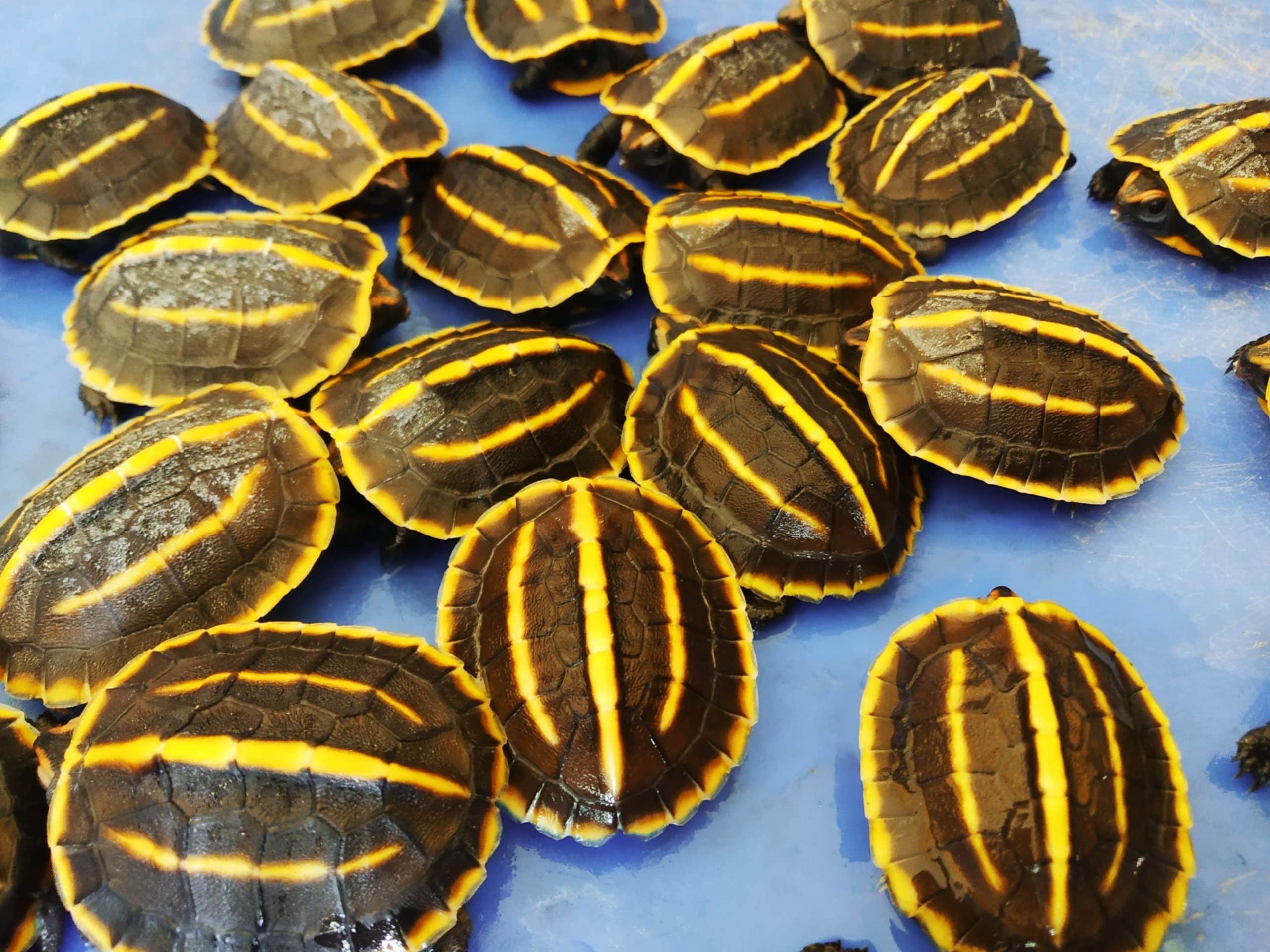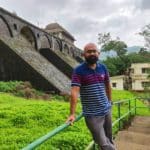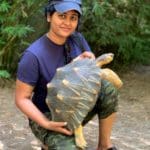Morning of 11 May 2021. Passing through the streets frozen into stillness, Rinku Kumar, our Turtle Keeper is on schedule to reach the Laboratory of Aquatic Biology (LAB) situated at Uttar Pradesh Forest Department’s (UPFD), Kukrail Gharial Rehabilitation Center (KGRC) in Lucknow, India. Despite the challenges and COVID19 restrictions after the second wave, Rinku is there to take stock of the hundreds of turtles under the care of Turtle Survival Alliance (TSA) India Program’s conservation breeding project. The eerily emptiness at the center soon turned into an exuberant welcome for him. Staring out of the eggs and holding on to hope were the hatchlings of Tricarinate Hill Turtles (Melanochelys tricarinata).
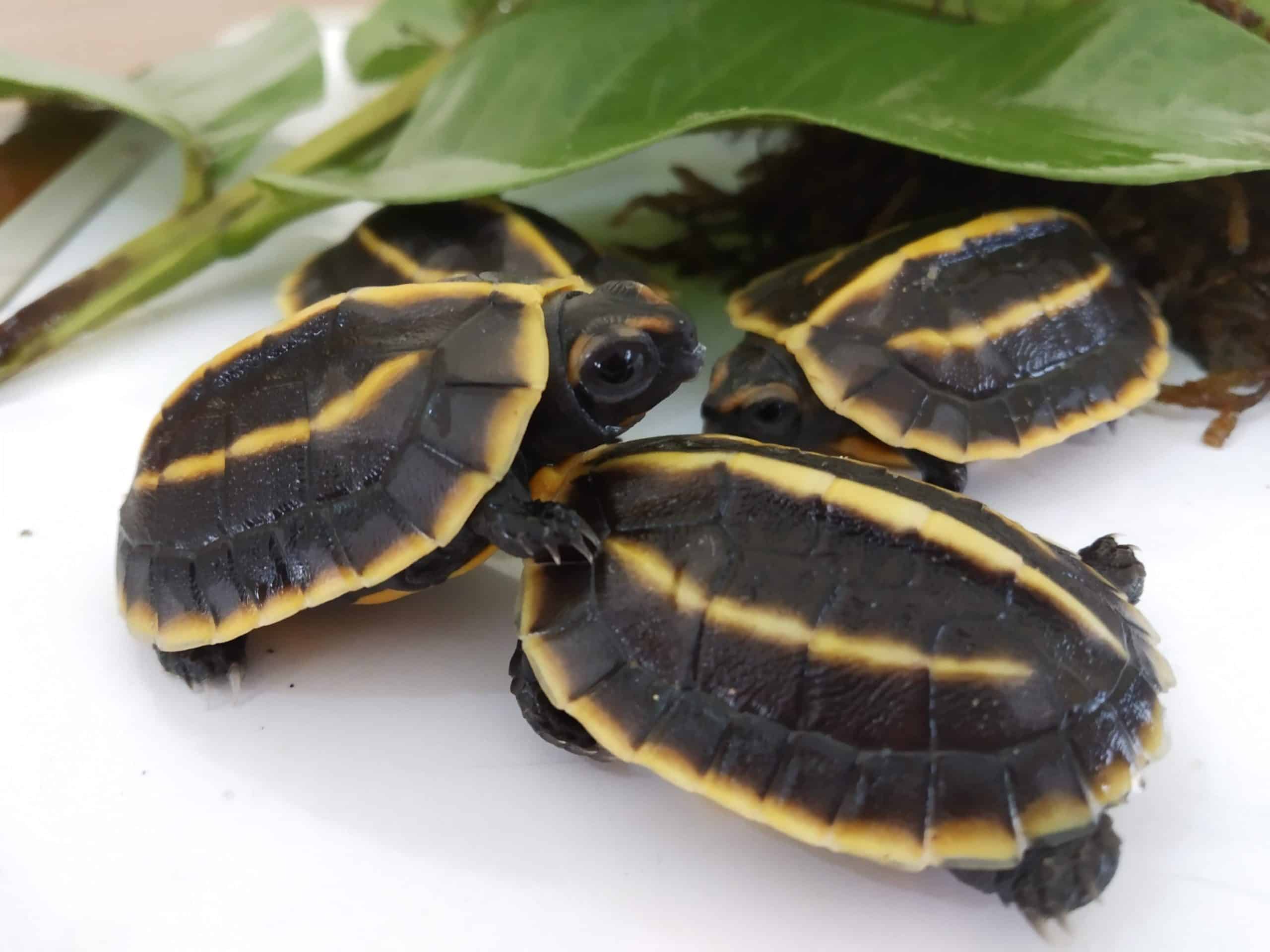
Tricarinate Hill Turtle hatchlings at the Kukrail Gharial Rehabilitation Center. Picture credits: Arunima Singh
The Tricarinate Hill Turtle is a small semi-aquatic species found along the narrow sub-Himalayan belt, stretching across northeastern India, southern Nepal, southern Bhutan, and northern Bangladesh. The species primarily inhabits temperate forests, as well as grasslands and foothills of the Himalayas. A victim of habitat destruction and exploitation for food and pet trade, this endearing turtle was classified as Endangered by the IUCN/SSC Tortoise and Freshwater Turtle Specialist Group in 2018. In its fourth year of successful captive breeding for the species, this hatching event also marks the highest number of Tricarinate Hill Turtle eggs and hatchlings produced in a year at the KGRC. Ten nests totaling 24 eggs were deposited between October 2020 and March 2021. In mid-May, all eggs hatched over a ten-day period demonstrating an exceptional 100% hatch rate! These 24 hatchlings significantly increase the captive population of this species at the joint TSA India Program/Endangered Project/Uttar Pradesh Environment, Forest and Climate Change Department’s LAB at the KGRC.
This feat also validates the captive-breeding potential for imperiled turtles seized from illegal trade. The parents of these hatchlings were among the Tricarinate Hill Turtles seized by the Uttar Pradesh Police Special Task Force and the UPFD under ‘Operation Kurma’, on 8 March 2017. Turtle trade is a serious problem in northern India and is at a worrisome level in the state of Uttar Pradesh. According to TRAFFIC India estimates, over 200 turtles are illegally traded every week, live or dead or as body parts. The TSA India team relentlessly works with local law and enforcement agencies to curb these activities. In this case, 54 Tricarinate Hill Turtles were rescued, which were found in small bundles within muslin bags, and stuffed into two backpacks. The team quickly released the animals from their bondage and administered first aid. Each specimen was identified, sorted, checked for any abnormalities or signs of ill health, and safely transported to the KGRC.
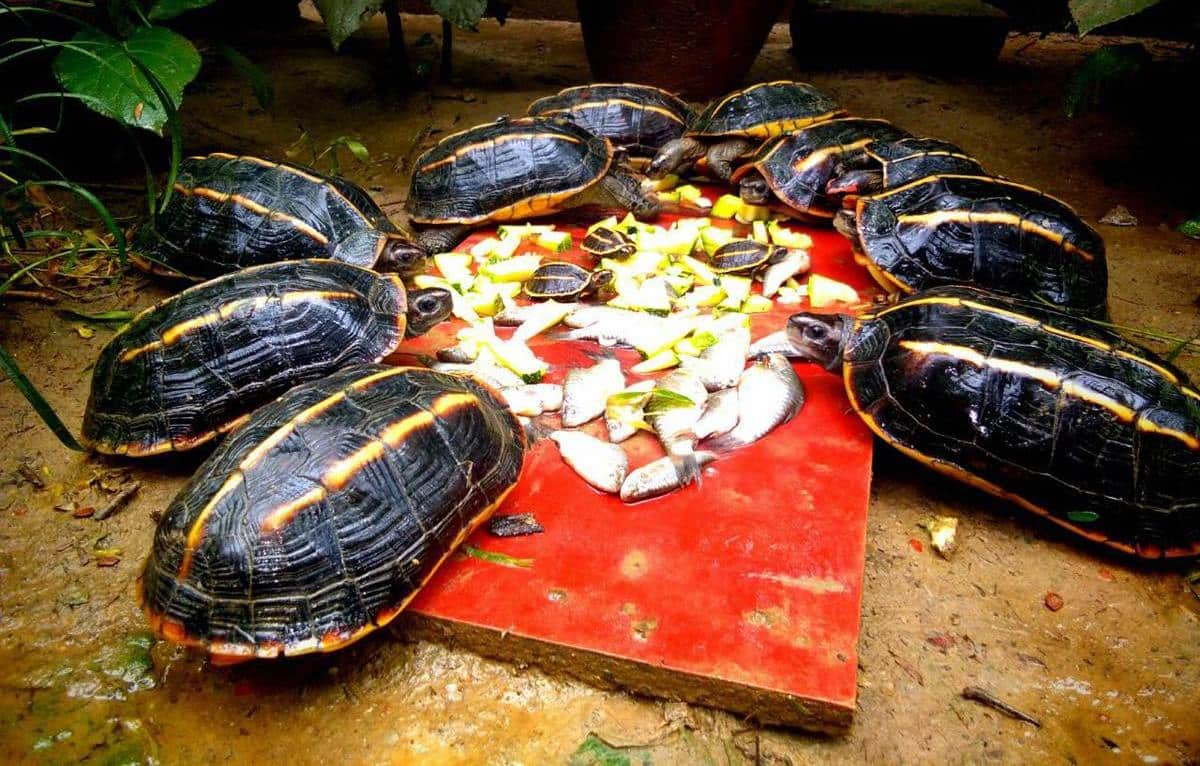
Care of rescued Tricarinate Hill Turtles and their new hatchlings at KGRC. Picture credits: Rinku Kumar
The cohort was maintained and monitored at the quarantine facility in KGRC for five months, in order to ensure healthiness before being released back to the wild. Surprisingly, in July 2017, the ex-situ team discovered 4 hatchlings in the Tricarinate Hill Turtle enclosure. This was an exhilarating moment, considering the stress that animals may have undergone while being atrociously smuggled. Following this event, the TSA India team and the UPFD retained 10 female and 6 male turtles from the seizure as founder individuals for a breeding program at the KGRC while the additional 38 turtles were released into a nearby protected area.
Today, no less than the modern-day Noah’s Ark, the Kukrail Gharial Rehabilitation Center, serves as a ‘reserve’ and ‘regenerator’ of some of the most endangered reptilians in the world. Established in 1978 by the UPFD to replenish the plummeting gharial population, it had freshwater turtles added to its roster following the Ganga Action Plan in the 1980s with an initial focus on reintroduction of captive-born animals back to the wild. Swinging in to actually deliver on the conservation rhetoric, TSA India Program got associated with the KGRC in the year 2013 to bolster conservation breeding and associated research activities.
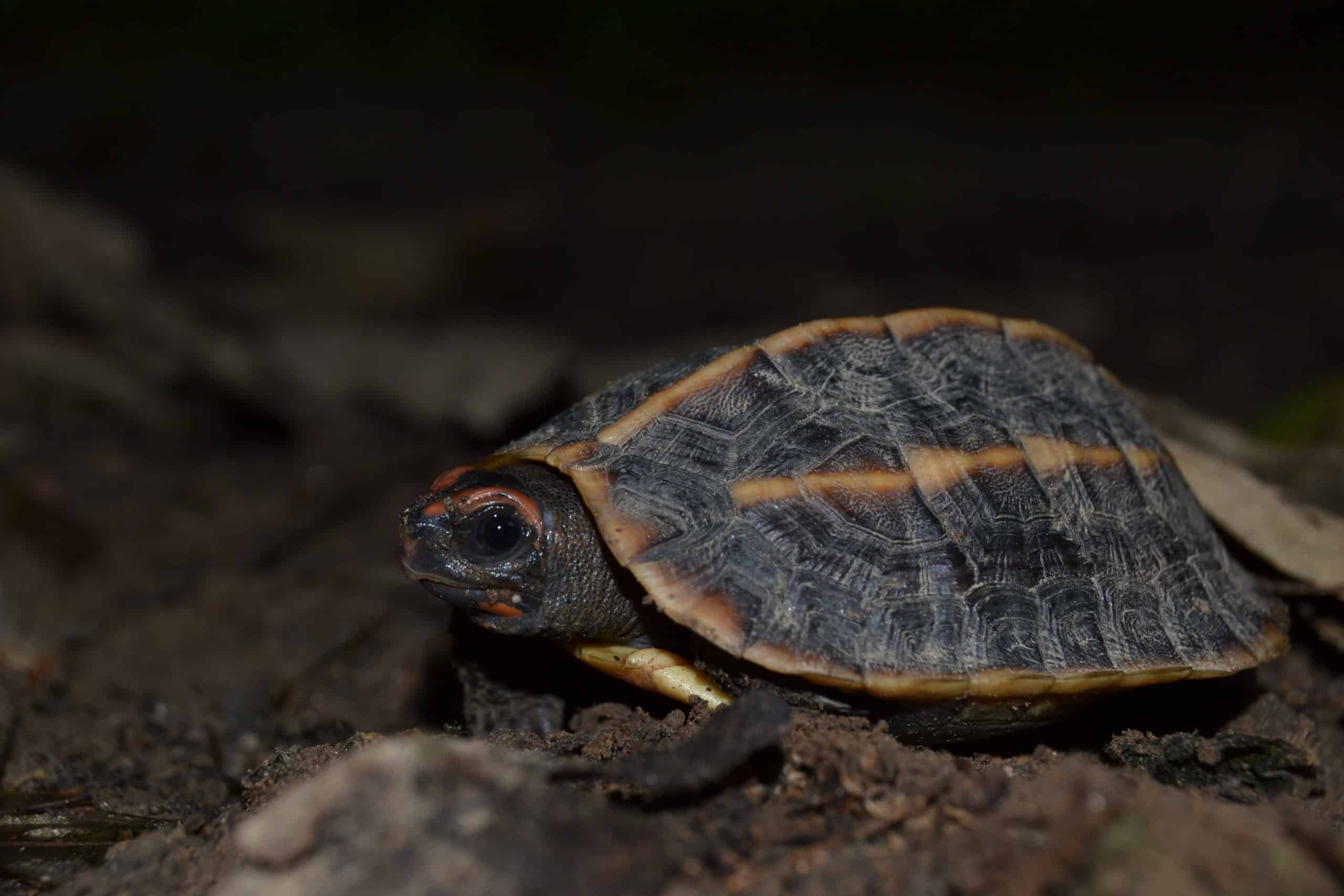
TSA India and KGRC’s collaborative efforts are establishing a missing connection between in-situ and ex-situ conservation of freshwater chelonians. Picture credits: Arunima Singh
Co-managing 12 of the 14 species found in Northern India, the program has successfully developed assurance colonies of several other threatened species like the Indian Narrow-headed Softshell Turtle (Chitra indica), the Crowned River Turtle (Hardella thurjii), the Indian Peacock Softshell Turtle (Nilssonia hurum), the Red-crowned Roofed Turtle (Batagur kachuga) and the Spotted Pond Turtle (Geoclemys hamiltonii) with the UPFD. From monitoring, researching, and refining the captive management of turtles and other species at the facility to assisting with rescue, rehabilitation, and veterinary care of the confiscated animals, the TSA India Ex-situ team’s efforts at the centre have established the erstwhile missing connection between in-situ and ex-situ conservation of freshwater chelonians in the region.

